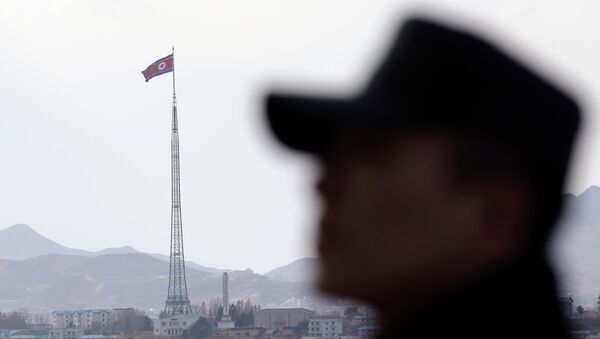South Korea's Foreign Minister Yun Byung-se said that it could reach a "crucial agreement" with the United States on increased pressure against North Korea in what could mean new US missile deployments and possibly, new sanctions.
South Korea has been ramping up rhetoric against North Korea in recent months as it hopes for a new deal on the two countries' frozen conflict. Talks reached a deadlock after South Korea demanded that the North admitted to sinking one of its ships in 2010 as a precondition to lifting economic sanctions. The US-South Korean leaders' summit, originally scheduled for June, was delayed because of a MERS (Middle East Respiratory Syndrome) outbreak in South Korea.
"Among the various issues of mutual interest, it all comes down to the North Korean nuclear issue," Foreign Minister Yun said on Thursday, as quoted by Korea Herald.
The US military has also been interested in deploying THAAD missile defense batteries in South Korea. Senior US Defense Department policy official Brian McKeon previously told South Korea's Yonhap News Agency that the two countries need to have "a conversation" about placing the batteries in the country.
"It's not about China. It's about protecting our deployed forces from the North Korean missile threat," McKeon said.
South Korea's defense minister Han Min-koo said in April that he believes that there are no indications that North Korea is preparing new long-range rocket launches or nuclear tests. North Korea previously launched short range surface-to-air missiles which were not aimed at ground targets. Both China and Russia have expressed concern about the prospect of THAAD missile deployments.
During his visit to the United States in June, the South Korean Foreign Minister said that the two sides agreed to put greater pressure on North Korea.
US State Secretary John Kerry said during the meeting that increasing pressure means "either sanctions or other means", which he did not explain. According to the United Nations children's fund, North Korea is currently experiencing a drought which has already led to some crop failures and could lead to the deaths of children if it spreads to rice harvests.




